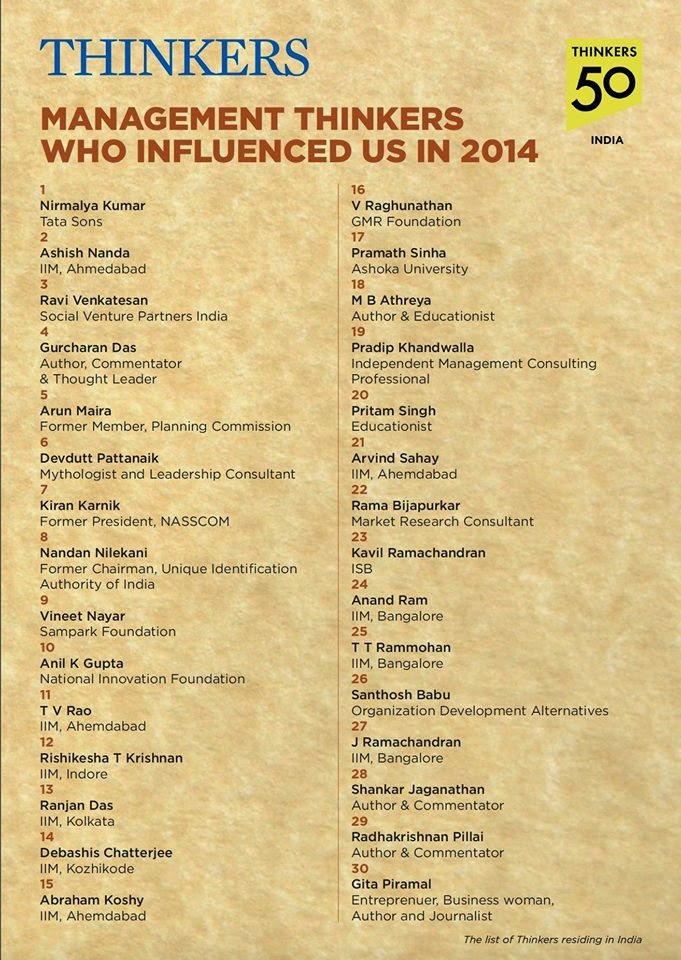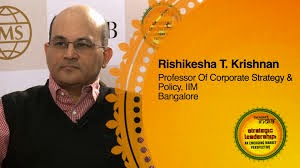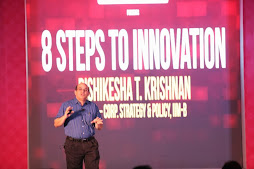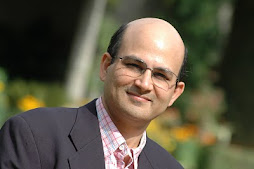I had the privilege of speaking at the Annual Conference of the European Industrial Research Management Association (EIRMA) held at Cannes last week (May 26-27, 2011). EIRMA (http://www.eirma.org/) is a forum for heads of R&D of about 120 leading companies in Europe to share ideas and best practices on the management of research and development in a corporate context. EIRMA was founded in 1966 and has been a vibrant arena for debating the changing role of corporate R&D.
EIRMA prides itself on providing a good environment for networking and informal exchanges. This year’s conference maintained that tradition, but there were several good “formal” talks as well.
I found Stephen Aguilar-Millan of the European Futures Observatory the most interesting, probably because he was the most provocative. He believes the next industry/technology wave will be focused on scarcity and sustainability. The last wave, information and communication technology is now mature, and we shouldn’t expect to see that as the locus of innovation for long (a sober thought for the Indian IT industry!). According to Stephen, there is no inevitability about China becoming the world’s largest economy – trouble on the west, negative demographics, raw material shortages, and high inflation could derail the China growth story.
Dorothea Seabode of Philips made an impassioned plea for sustainability-driven innovation. She drew on the WWF Living Planet report and the WBCSD Vision 2050 to make a strong case for such a push. I was impressed by the level of integration of sustainability into the Philips corporate agenda. Starting as a part of the Management Agenda, it is today very much a part of the company’s operational framework. For example, their EcoVision 5 sets a target of improving energy efficiency by 50% by 2015.
Another useful perspective was from Werner Frohling, Chief Intellectual Property Counsel for Volvo. He gave an excellent summary of the evolution of the intellectual property system in Europe, and identified today’s key challenges – 1. The Chinese Patent Tsunami – a huge growth in patenting by local inventors in China in Mandarin. These patents will constitute prior art in all patent domains in the future, and companies that don’t keep track may come up against barriers to IP protection even in their own home markets! 2. A clear mismatch between the high growth fields of business such as services and the areas of patentability that are more oriented to a product-dominated world. 3. The shortening life cycle of products, but long lead times for patent grants leading to another mismatch between innovation and protection.
A few interesting statistics from the talk by the Head of Centro Richerche Fiat: automobile design and development lead times have come down from 48 months to just 15-18 months; in 2010, a car typically had 15,000+ parts, and its average price per Kg was comparable to that of a hamburger; Fiat has a huge open innovation network, and works with as many as 400 university partners. He made the counter-intuitive point that the use of electric cars in China may make the environment worse rather than better because of the poor environmental performance of coal-based power plants in that country (according to his data, the same would be true in India as well!).
The talk by Matthias Kaiserwerth, head of IBM Research’s Zurich Lab raised interesting questions about whether machine intelligence could soon surpass human intelligence and thus change the innovation landscape altogether. He referred to the rapid improvement of robots – IBM’s Watson can even play a complex game like Jeopardy successfully. Machine intelligence is no longer based on programming, but is today driven by learning.
We visited the Sophia Antipolis Science Park, one of the oldest (proposed in 1960) and most successful in Europe. I was impressed by its ability to keep some core principles (easy access; low-profile architecture that merges with the environs) invariant while changing on others (some land is now being used for different purposes such as shopping and low-tech employment so as to meet the needs of the larger community). The founder and visionary of the park was a French senator!
As you will notice, the activities at EIRMA had a lot of variety and food for thought. It would be useful to have a similar organization in India, but with a broader scope of innovation management rather than R&D management!
EIRMA prides itself on providing a good environment for networking and informal exchanges. This year’s conference maintained that tradition, but there were several good “formal” talks as well.
I found Stephen Aguilar-Millan of the European Futures Observatory the most interesting, probably because he was the most provocative. He believes the next industry/technology wave will be focused on scarcity and sustainability. The last wave, information and communication technology is now mature, and we shouldn’t expect to see that as the locus of innovation for long (a sober thought for the Indian IT industry!). According to Stephen, there is no inevitability about China becoming the world’s largest economy – trouble on the west, negative demographics, raw material shortages, and high inflation could derail the China growth story.
Dorothea Seabode of Philips made an impassioned plea for sustainability-driven innovation. She drew on the WWF Living Planet report and the WBCSD Vision 2050 to make a strong case for such a push. I was impressed by the level of integration of sustainability into the Philips corporate agenda. Starting as a part of the Management Agenda, it is today very much a part of the company’s operational framework. For example, their EcoVision 5 sets a target of improving energy efficiency by 50% by 2015.
Another useful perspective was from Werner Frohling, Chief Intellectual Property Counsel for Volvo. He gave an excellent summary of the evolution of the intellectual property system in Europe, and identified today’s key challenges – 1. The Chinese Patent Tsunami – a huge growth in patenting by local inventors in China in Mandarin. These patents will constitute prior art in all patent domains in the future, and companies that don’t keep track may come up against barriers to IP protection even in their own home markets! 2. A clear mismatch between the high growth fields of business such as services and the areas of patentability that are more oriented to a product-dominated world. 3. The shortening life cycle of products, but long lead times for patent grants leading to another mismatch between innovation and protection.
A few interesting statistics from the talk by the Head of Centro Richerche Fiat: automobile design and development lead times have come down from 48 months to just 15-18 months; in 2010, a car typically had 15,000+ parts, and its average price per Kg was comparable to that of a hamburger; Fiat has a huge open innovation network, and works with as many as 400 university partners. He made the counter-intuitive point that the use of electric cars in China may make the environment worse rather than better because of the poor environmental performance of coal-based power plants in that country (according to his data, the same would be true in India as well!).
The talk by Matthias Kaiserwerth, head of IBM Research’s Zurich Lab raised interesting questions about whether machine intelligence could soon surpass human intelligence and thus change the innovation landscape altogether. He referred to the rapid improvement of robots – IBM’s Watson can even play a complex game like Jeopardy successfully. Machine intelligence is no longer based on programming, but is today driven by learning.
We visited the Sophia Antipolis Science Park, one of the oldest (proposed in 1960) and most successful in Europe. I was impressed by its ability to keep some core principles (easy access; low-profile architecture that merges with the environs) invariant while changing on others (some land is now being used for different purposes such as shopping and low-tech employment so as to meet the needs of the larger community). The founder and visionary of the park was a French senator!
As you will notice, the activities at EIRMA had a lot of variety and food for thought. It would be useful to have a similar organization in India, but with a broader scope of innovation management rather than R&D management!














